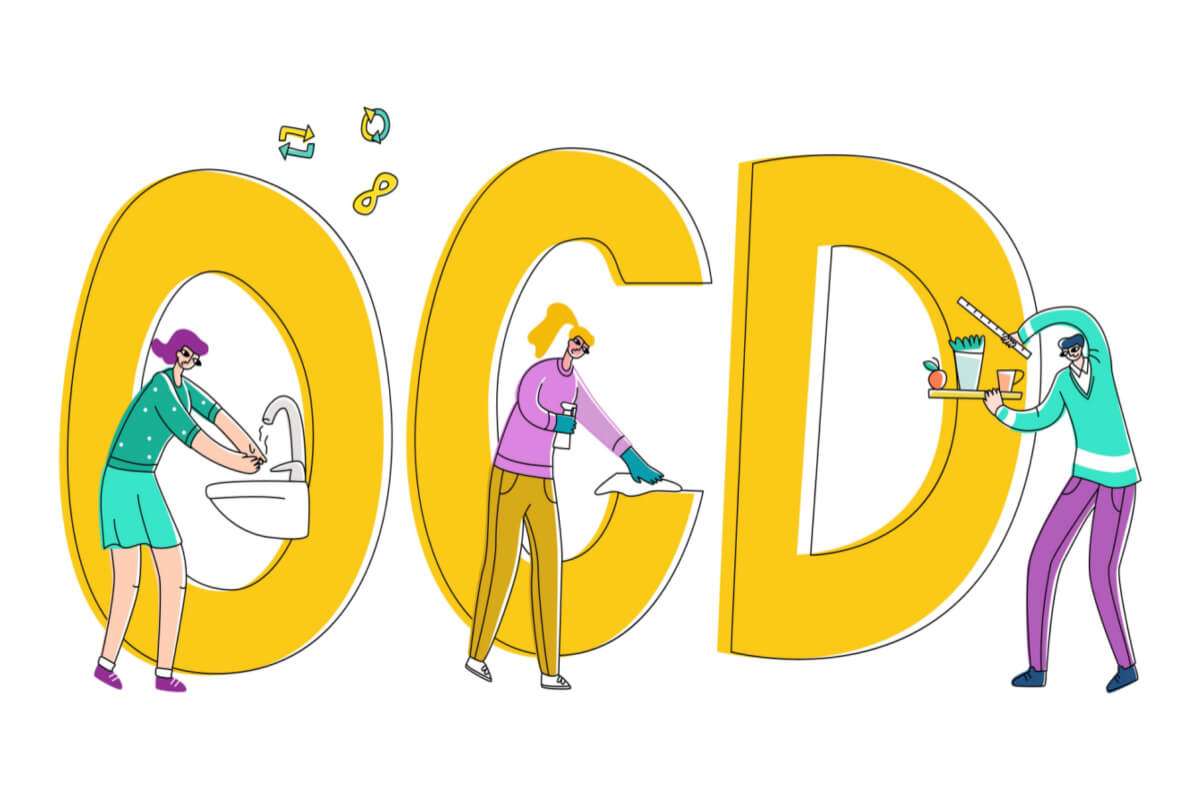Introduction:
Obsessive-Compulsive Disorder (OCD) is a mental health condition that can significantly impact daily life. Recognizing the early signs of OCD is essential to obtaining timely help and support. Early intervention can often prevent symptoms from worsening and equip individuals with effective coping strategies. In this guide, we’ll explore seven early signs of OCD, offering insights to help you recognize this condition and take steps toward proper care.
What is OCD?
OCD is a mental health disorder characterized by unwanted, intrusive thoughts (obsessions) and repetitive behaviors (compulsions) that a person feels compelled to perform. These thoughts and actions can become time-consuming and distressing, impacting a person’s work, relationships, and overall well-being. Recognizing the early signs of OCD can be vital in seeking timely help.
For those seeking the best OCD treatment, consider visiting:

7 Early Signs of OCD
1. Repeated Checking
One common early sign of OCD is the compulsive need to check things repeatedly. This may include actions like ensuring the door is locked multiple times or repeatedly verifying that appliances are turned off. Individuals with OCD often feel an overwhelming sense of doubt or fear that something might go wrong if they don’t check repeatedly, leading to repeated, time-consuming actions.
2. Fear of Contamination
A heightened fear of contamination or germs is another early sign. People with OCD may have an intense aversion to touching objects or surfaces they perceive as “unclean.” This can lead to excessive hand-washing or the avoidance of certain places or people, ultimately affecting their social interactions and daily life.
3. Needing Things to Be “Just Right”
OCD can manifest as a need for orderliness and symmetry. Individuals might feel distressed if objects aren’t arranged in a certain way or if things are not “just right.” This can result in hours spent arranging and rearranging items, often at the expense of other important activities or obligations.
4. Intrusive Thoughts
Intrusive, distressing thoughts are a hallmark of OCD. These thoughts can be about anything, often focusing on subjects like harm, violence, or taboo topics that the person would never act on. While everyone experiences unwanted thoughts from time to time, those with OCD find these thoughts more persistent and distressing, which can lead to compulsive behaviors aimed at “neutralizing” the thoughts.
5. Repetitive Counting or Mental Rituals
Some individuals with OCD may engage in mental rituals, like counting or repeating words silently to themselves, to reduce anxiety. These rituals can feel necessary to alleviate distress or prevent perceived harm. For example, a person might feel compelled to count to a specific number before moving on to their next task or even engage in complex counting routines throughout the day.
6. Excessive Doubt and Need for Reassurance
OCD can lead to extreme doubt about one’s actions, thoughts, or safety. This often results in repeatedly seeking reassurance from loved ones. For example, a person might repeatedly ask if they’ve done something correctly or if they’re safe. This behavior not only affects the individual’s well-being but can also place a strain on relationships.
7. Avoidance of Certain Situations
As OCD progresses, individuals might start avoiding situations that trigger their obsessions and compulsions. For instance, someone with contamination fears may avoid public places or refuse to shake hands. This avoidance can limit their activities, social life, and opportunities, impacting their overall quality of life.
Why Recognizing Early Signs of OCD is Important
Identifying the signs of OCD early allows individuals to seek professional help sooner, which can lead to better long-term outcomes. Treatments, such as cognitive-behavioral therapy (CBT), have proven effective in helping people manage their symptoms. Early intervention can make a difference in how OCD affects one’s life and reduce the condition’s impact on daily functioning.
Getting Help for OCD
If you or someone you know is experiencing these early signs of OCD, it may be beneficial to consult a mental health professional. While OCD is a chronic condition, treatments and coping mechanisms can significantly reduce symptoms and improve quality of life. Remember, seeking help is a positive and proactive step toward better mental health.
For more information on OCD and mental health resources, consider visiting these authoritative sources:
By recognizing these early signs, individuals and their loved ones can take crucial steps to seek help, support, and effective interventions. Early action can make all the difference in managing OCD and living a fulfilling life.

